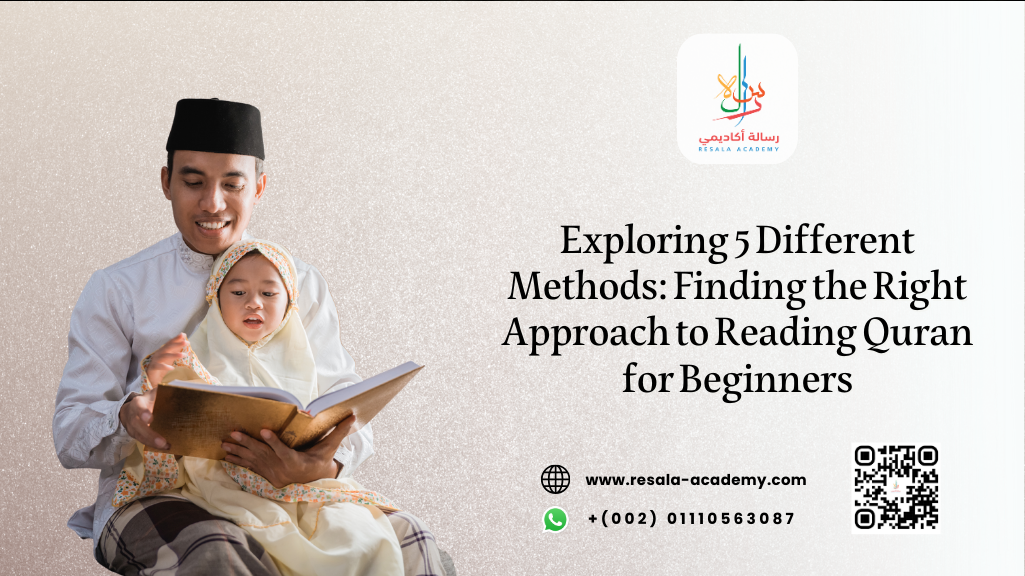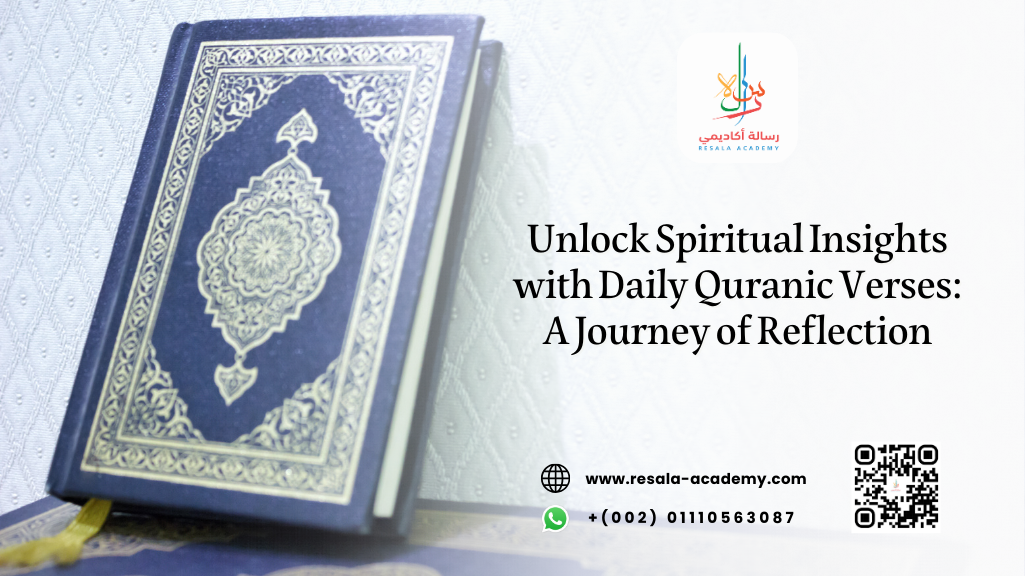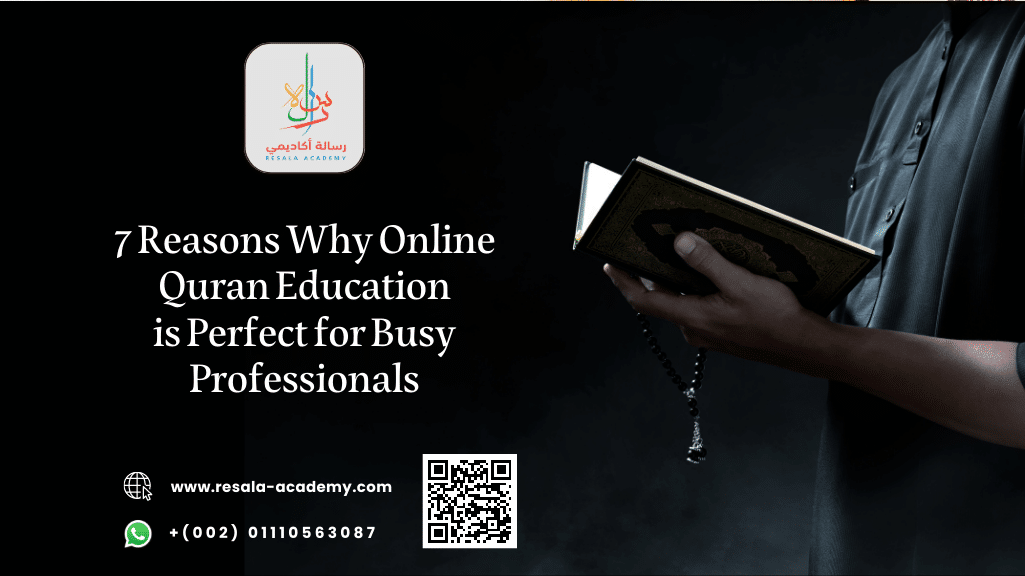Exploring 5 Different Methods: Finding the Right Approach to Reading Quran for Beginners
The Quran considered the holy book of Islam, holds great significance for Muslims around the world. Its words are believed to be the divine guidance and teachings from Allah Himself. For beginners who are just starting their journey of reading the Quran, it can seem like a daunting task. However, with the right approach and guidance, anyone can embark on this beautiful spiritual journey.
In this blog post, we will explore five different methods that can help beginners find their way into Reading Quran for Beginners. We will delve into common challenges faced by beginners and provide tips for effective practice. Whether you’re completely new to Arabic or have some prior knowledge, these approaches will offer you flexibility in finding what works best for you.
So if you’re ready to unlock the wisdom and blessings contained within this sacred text, let’s dive into exploring these different methods!
Understanding the Importance of Reading Quran for Beginners
The Quran holds immense importance for Muslims, serving as a guide to lead a righteous and fulfilling life. For beginners, reading the Quran opens up a world of spiritual growth, knowledge, and connection with Allah. It is not just about reciting words; it is about understanding the message behind them.
Reading the Quran allows beginners to gain insights into Islamic principles, morals, and values. It provides them with guidance on how to navigate through life’s challenges while maintaining faith and righteousness. The Quran teaches compassion, patience, gratitude, and forgiveness—virtues that can shape one’s character.
Furthermore, reading the Quran helps beginners establish a personal relationship with Allah. By engaging in its verses regularly, they develop a deep sense of spirituality that strengthens their connection with God. This connection brings solace during difficult times and serves as a source of inspiration and motivation.
In addition to its spiritual significance, reading the Quran also enhances linguistic skills by delving into Arabic language mastery. Beginners learn new vocabulary words and grammatical structures which broaden their linguistic horizons beyond religious contexts.
Understanding the importance of reading the Quran empowers beginners to embark on this journey with enthusiasm and dedication. It ignites within them an eagerness for knowledge and self-improvement while fostering an unbreakable bond between themselves and their Creator.
Common Challenges Faced by Beginners When Trying to Read Quran
For beginners embarking on their journey to read the Quran, there are several common challenges that they may encounter along the way. These challenges can sometimes make it difficult for newcomers to establish a consistent and effective reading practice.
One of the most common hurdles faced by beginners is understanding Arabic script. Since the Quran is written in classical Arabic, which may be unfamiliar to many learners, deciphering the letters and pronunciations can pose a significant challenge. Additionally, learning proper Tajweed (the rules of recitation) requires time and dedication.
Another obstacle that beginners often face is finding enough time for regular practice. With busy schedules and various commitments, carving out dedicated time each day for Quran reading can be challenging. However, consistency is key to progress.
Additionally, maintaining motivation can be tough when faced with complex verses or concepts within the text. The language used in the Quran may require further study or guidance from knowledgeable teachers or scholars—this additional support helps students stay motivated and understand deeper meanings.
Furthermore, distractions during reading sessions can hinder comprehension and focus. In today’s digital age filled with notifications and constant connectivity, creating a peaceful environment free from interruptions becomes crucial to fully engage with the text.
Lack of guidance or proper resources can also impede progress for beginners. Having access to qualified instructors who provide step-by-step guidance tailored to individual needs greatly enhances learning outcomes.
While these challenges may seem daunting at first glance, they are not insurmountable barriers on your path toward becoming proficient in reading the Quran as a beginner! By addressing these obstacles head-on through perseverance and seeking appropriate assistance when needed – such as enrolling in online courses or joining local study groups – you will gradually overcome them one by one!
Remember: every new endeavor comes with its own set of challenges but taking small steps consistently will lead you towards success! Keep pushing forward on your Quran reading journey and embrace the growth that lies ahead.
5 Different Approaches to Reading Quran for Beginners in bullet points
1. Reciting with Tajweed: Tajweed is the correct pronunciation and application of rules while reciting the Quran. This approach focuses on mastering proper Arabic pronunciation, tone, and rhythm. It ensures that beginners develop a strong foundation in reading the Quran accurately.
2. Memorization: Many beginners find memorizing portions of the Quran beneficial as it helps in building a deep connection with the holy book. By memorizing verses or chapters, beginners can internalize its teachings and recall them easily during daily recitation or prayer.
3. Translation and Tafsir: Understanding the meaning behind the words is crucial for meaningful engagement with the Quran. Beginners can choose to read translations in their native language alongside Arabic text to comprehend Allah’s message better. Additionally, referring to Tafsir (interpretations) by scholars provides valuable insights into context and deeper meanings.
4. Listening to Recitations: Listening attentively to expert reciters not only enhances one’s understanding but also improves pronunciation skills through imitation. Utilizing audio resources allows beginners to absorb accurate pronunciations, melodies, and pauses within each verse.
5. Group Study Circles: Joining study circles or finding study groups where learners gather together can be highly beneficial for beginners seeking guidance and support from more experienced individuals who have already embarked on their journey of reading the Quran.
By exploring these different approaches, beginners can discover which method resonates best with their learning style and goals when it comes to reading the Quran effectively.
Benefits of Each Approach to Reading Quran for Beginners
There are various approaches that beginners can take when it comes to reading the Quran, each with its unique benefits. Let’s explore these different methods and how they can help beginners in their journey:
1. Recitation with Tajweed: This approach focuses on pronunciation and correct recitation. It helps beginners develop a strong foundation in Arabic phonetics, enabling them to recite the words of the Quran accurately. By learning Tajweed rules, beginners improve their understanding of proper articulation and intonation.
2. Memorization: The power of memorizing the Quran cannot be underestimated. This approach allows beginners to immerse themselves in the verses, fostering a deep connection with Allah’s words while enhancing memory skills. Memorization also enables individuals to easily recall and apply Islamic teachings throughout their lives.
3. Translation and Tafsir: Understanding the meaning behind the verses is crucial for every beginner reader. By studying translations and Tafsir (interpretations), individuals gain insights into the historical context, themes, and practical applications of each verse.
4. Daily Reflection: Taking time for reflection after reading each day encourages contemplation on Allah’s message within personal experiences or challenges faced by individuals as they interact with society.
5. Seek Guidance from Teachers: Having access to knowledgeable teachers who can guide correct pronunciation, interpretation, and application is invaluable for beginners seeking a deeper understanding of the Quran.
By exploring these different approaches based on individual goals and preferences, beginners can find an approach that resonates best with them as they embark on their journey of reading the Quran.
Tips for Effective Quran Reading Practice as a Beginner
1. Establish a Routine: Consistency is key when it comes to learning the Quran. Set aside dedicated time each day to focus on your reading practice. This will help you build a habit and make progress more quickly.
2. Start with Short Surahs: Begin by memorizing and reciting shorter surahs (chapters) of the Quran, such as Surah Al-Fatiha or Surah Al-Ikhlas. These surahs are relatively shorter in length and can boost your confidence as you start your journey.
3. Seek Guidance from an Expert: Enroll in online Quran classes or find a knowledgeable teacher who can guide you through the correct pronunciation and understanding of the verses. A qualified instructor will be able to provide valuable feedback and help clarify any doubts or questions you may have.
4. Use Tajweed Rules: Tajweed refers to the rules of proper recitation of the Quran, including proper pronunciation, elongation, pauses, etc. Learn these rules gradually and apply them while reciting to enhance your reading skills.
5. Reflect on Meaningful Verses: As you read, take time to ponder over the meanings of certain verses that resonate with you. Understanding their context and contemplating their significance can deepen your connection with the text.
Remember that learning how to read the Quran is a lifelong journey filled with blessings and rewards from Allah (SWT). Stay patient, seek knowledge consistently, and trust in His guidance throughout this beautiful process.
Resala Academy Offers Online Quran Classes for Kids
Resala Academy is a leading online platform that offers Quran classes specifically designed for kids. To provide comprehensive and interactive learning experiences, Resala Academy ensures that children can easily understand and connect with the teachings of the Quran.
One of the key advantages of Resala Academy’s online Quran classes for kids is the convenience it offers. Parents no longer have to worry about commuting or scheduling conflicts as their children can access these classes from anywhere and at any time. This flexibility allows kids to learn at their own pace, making it easier for them to absorb and retain knowledge.
The curriculum offered by Resala Academy focuses on building a strong foundation in reading Arabic letters, understanding Tajweed rules, memorizing selected verses, and comprehending Islamic principles. The courses are taught by experienced teachers who employ engaging teaching methods such as storytelling, games, and interactive quizzes to make learning enjoyable for young learners.
Furthermore, Resala Academy provides personalized attention to each student through one-on-one sessions with instructors. This individualized approach enables teachers to address specific challenges faced by each child and tailor their lessons accordingly.
With its user-friendly interface and excellent technical support team, Resala Academy ensures a seamless learning experience for both students and parents. In addition to Quran classes, they also offer supplementary courses on Tafsir (Quranic interpretation) and Hadith (Prophetic traditions), allowing children to develop a holistic understanding of Islam.
In conclusion – By enrolling your child in online Quran classes at Resala Academy, you can provide them with an enriching educational experience that nurtures their spiritual growth while fostering a love for Allah’s words.
FAQs
1. Is it necessary to learn Arabic to read the Quran as a beginner?
Learning Arabic is not a prerequisite for reading the Quran as a beginner. While knowing Arabic can enhance your understanding of the text, there are transliterations available that provide pronunciation guides in your native language.
2. How much time should I dedicate to practicing Quran reading daily?
The amount of time you spend practicing Quran reading will depend on your schedule and commitment level. Even dedicating 10-15 minutes each day can make a difference in improving your skills and building consistency.
3. How do I choose which approach is best for me as a beginner?
Choosing the right approach depends on individual preferences and learning styles. Consider factors such as availability of resources, personal goals, and guidance from experienced teachers or mentors.
4. Can I join online Quran classes if I have no prior experience?
Yes! Online Quran classes cater to beginners without any prior experience. Experienced instructors will guide you step-by-step through the learning process, providing personalized attention and support when needed.
5. What if I struggle with pronouncing certain words correctly?
Struggling with pronunciation is common among beginners, but with practice and guidance, it can be overcome easily. Joining an online class or seeking assistance from knowledgeable individuals can help improve your pronunciation skills gradually.
Conclusion
Reading the Quran is of utmost importance for beginners as it allows them to connect with their faith and gain a deeper understanding of Islam. However, many beginners face challenges when trying to read the Quran, such as a lack of proficiency in Arabic or difficulty in maintaining a regular practice.
Each approach has its benefits depending on an individual’s goals, preferences, and circumstances.
– Learning Arabic empowers readers to engage directly with original texts.
– Transliteration aids in correct pronunciation until fluency is achieved.
– Translation enables immediate access to meaningful content.
– Tafsir enhances contextual comprehension.
– Joining a class provides personalized guidance and support throughout one’s learning journey.
To ensure effective practice as a beginner:
1) Set aside dedicated time daily for reading sessions
2) Seek support from knowledgeable individuals or mentors
3) Utilize technological tools and apps for interactive learning experiences
4) Start with short surahs and gradually progress to longer ones
5) Reflect on meaningful verses to deepen understanding and connection with the text.
For children, Resala Academy offers online Quran classes specifically designed for kids. With a focus on building a strong foundation in reading Arabic, understanding Tajweed rules, and comprehending Islamic principles, these courses provide an enriching learning experience for young learners.
In conclusion, exploring different methods and approaches can help beginners find what works best for them in their journey of reading the Quran. With consistency, dedication, and guidance from experienced instructors or mentors, anyone can embark on this beautiful spiritual journey and reap its countless rewards.




